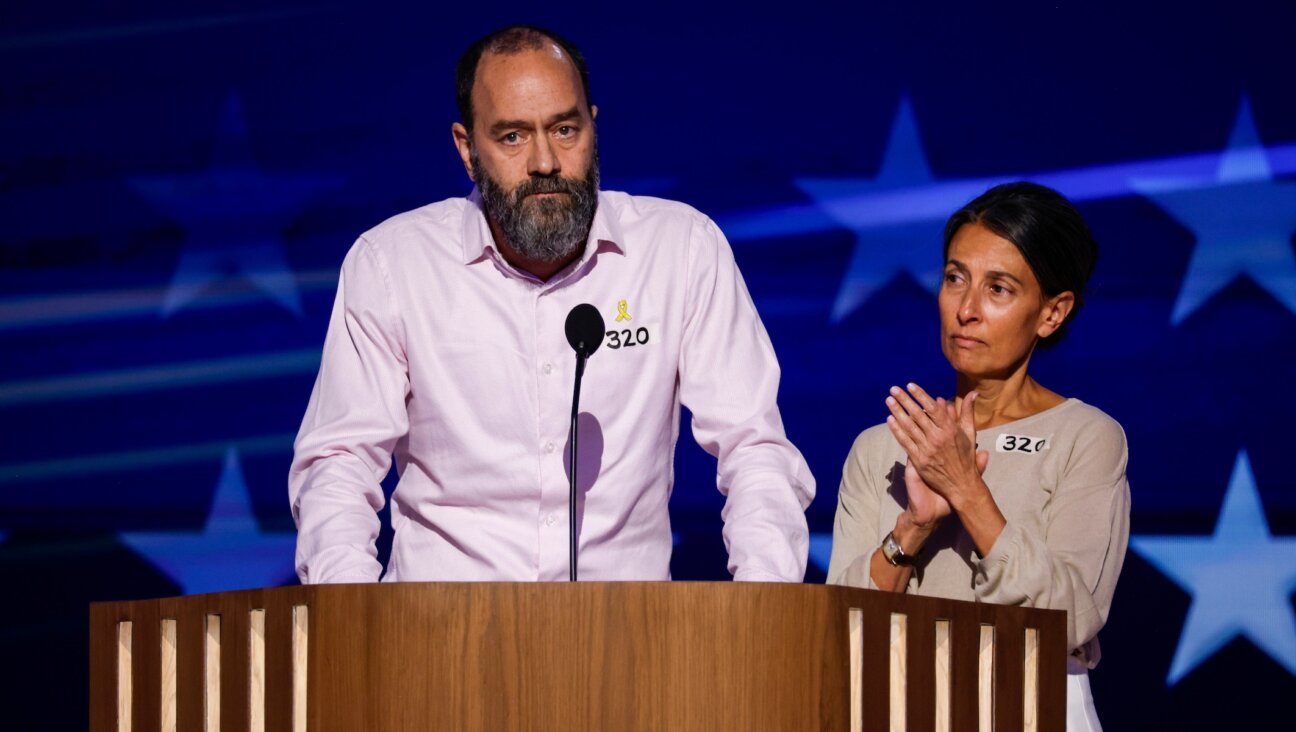Israeli-American Misses Second Chance at Medal But Savors Second Chance at Life
What must it have been like for Rami Zur today, the American-turned-Israeli-turned-US team kayaker, when he found himself eliminated from the Olympics after placing seventh in the men’s kayak single 1,000 meters race? Surely there was some despair and anger. But could there also have been a smile? A chuckle perhaps?
Zur, who was born in America and adopted as a baby by an Israeli family and grew up on a kibbutz near the Kinneret, probably felt a terrible sense of deja vu when history repeated itself this afternoon. Playing again for the US thanks to his dual citizenship, Zur was knocked out of the semifinals in the same events at the Athens Games four years ago, his second Olympics after competing for Israel in Sydney. But that’s where the Groundhog Day scenario ends.
Not long after Athens, Zur slipped poolside and fell into the shallow end, surfacing seemingly unscathed, only to find out days later that he had broken his neck and could have been paralyzed, according to news reports.
In the long journey to recovery, complete with screws and a titanium plate to fuse two of his vertebrae, Zur found his strength and healing in his kayak. Apparently the swift movement aided his rehabilitation and he was soon back at the paddle months after his accident.
For the former Israeli soldier, life was never the same, and his being able to return to the Olympics after such a close call is in many ways victory enough. After all, there’s always 2012.
Read more about Zur’s Jewish past and stunning recovery here, and watch him in action below:
A message from our Publisher & CEO Rachel Fishman Feddersen

I hope you appreciated this article. Before you go, I’d like to ask you to please support the Forward’s award-winning, nonprofit journalism so that we can be prepared for whatever news 2025 brings.
At a time when other newsrooms are closing or cutting back, the Forward has removed its paywall and invested additional resources to report on the ground from Israel and around the U.S. on the impact of the war, rising antisemitism and polarized discourse.
Readers like you make it all possible. Support our work by becoming a Forward Member and connect with our journalism and your community.
— Rachel Fishman Feddersen, Publisher and CEO






















